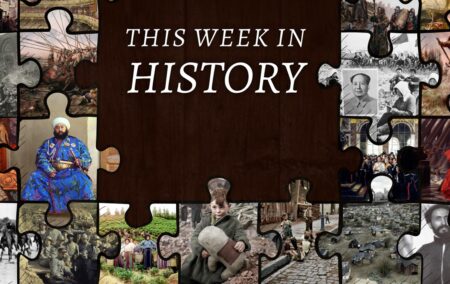This Week in History recalls memorable and decisive events and personalities of the past.
15th August 1920 – Polish–Soviet War: Battle of Warsaw, so-called Miracle on the Vistula

In 1917, having just seized control of the Russian Empire, the new Soviet government signed a peace deal with the German Empire, ceding to it an enormous portion of western Russia, along with some satellite states which the Germans expected to dominate.
At the time, the Soviets also faced massive unrest and rebellion across much of the country by the anti-communist White Army. This meant that, when, within a year, the Germans signed an armistice with the western powers, which effectively reversed their peace treaty with the Soviets, the communists were in no position to reassert control over the former Russian territories in the west.
Many nationalist groups of various ethnic and religious minorities in these territories exploited the chaos to rise up and establish their own states; the Soviets soon confronted revolts by Ukrainians, Estonians, Poles, Latvians, Lithuanians and others all across their western and southern flanks.
The Poles, having just formed a newly independent Poland, joined the Ukrainians in trying to form an anti-Soviet alliance of all the nationalities in the western territories – despite not getting on among themselves – to push the Soviets back into Russia.
Initially this attack had some success, with Polish and Ukrainian forces capturing the ancient Ukrainian capital of Kiev. However, the Soviets reorganised their armies and, with forces now freed up the defeat of much of the White Army, turned their attention on the Poles and Ukrainians.
The Soviets declared that the communist revolution must be taken west on the bayonets of the Russian soldiers and that the road to a European-wide workers’ revolution lay through Warsaw.
Soviet forces pushed back the Poles and Ukrainians and soon Poland was in danger of collapse from their relentless attack.
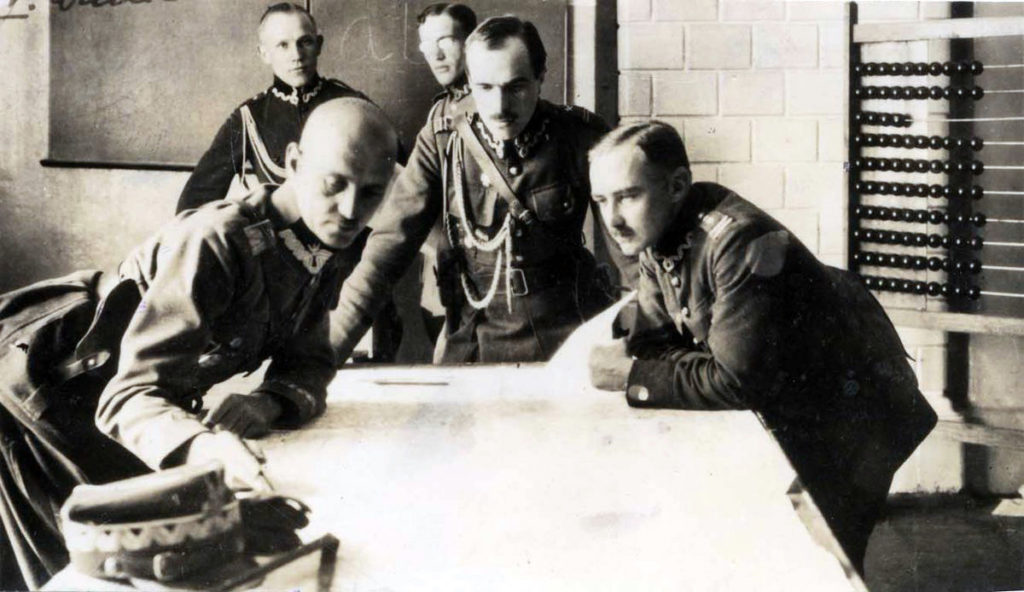
By early August 1920, the Soviet army was deep into Polish territory and had its sights set on the Polish capital. The Poles, however, had managed to break Soviet radio codes and identified a weak spot in the Soviet lines. This they sought to exploit by luring the Soviets into a trap along the Vistula River, just outside Warsaw.
While drawing the Soviet army across the river to the north of Warsaw, the Poles launched a massive attack across the river to the south of the city, where the Soviet army was weak.
This allowed them to get behind the Soviet advance and almost entirely surround the Soviet forces. In the ensuing battle, much of the Soviet army disintegrated. Its losses were high – 10 000 to 25 000 troops killed, 30 000 wounded, and 65 000 captured. Those who fled across the border into Germany were detained and disarmed.

The Poles, by contrast, lost 12 000 men, with 26 000 wounded, but their army remained a coherent force. The Soviet invasion had been shattered.
The Poles would go on to win more victories against the Soviets and, by October, the war was over. They called their victory the ‘Miracle on the Vistula’. It formed a key moment in the reestablishment of Polish identity. The Soviets, left to lick their wounds, would nurse a deep grudge against the Poles which they would satisfy when they invaded Poland again in 1939, this time with the help of Nazi Germany.
The Poles abandoned their Ukrainian allies, who were reincorporated into the Soviet Union.
17th August 1945 – George Orwell’s novella Animal Farm is published
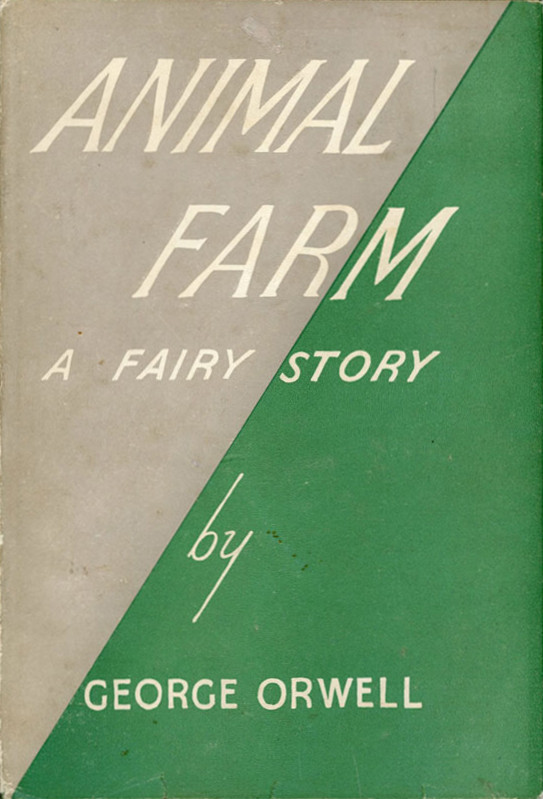
Between 1943 and 1944, democratic socialist George Orwell wrote what would become one of his most famous works, Animal Farm: A fairy story, a satirical book aimed at exposing the horror of Stalinism, then deeply entrenched in the Soviet Union. The book is a rough analogy of the Russian Revolution of 1917 and tells the story of a group of farm animals who rise up against the tyrannical farmer to take control of the farm for themselves. Soon, an elite consisting of the pigs takes control of the new animal society and gradually becomes as tyrannical as the farmer it replaced.
Having written the book during the Second World War, when his home country of Great Britain was allied to the Soviet Union against Nazi Germany, Orwell struggled initially to get it published because publishers feared the book would upset the Soviets and threaten the alliance between Britain and Russia. Four publishers rejected the book outright. A fifth at first accepted it, but later turned it down after an official at the British Ministry of Information warned them off. The civil servant who it is assumed gave the advice was later found to be a Soviet spy.

In a preface to the novella not included in initial drafts, Orwell warned: ‘The sinister fact about literary censorship in England is that it is largely voluntary…. Things are kept right out of the British press, not because the Government intervenes but because of a general tacit agreement that “it wouldn’t do” to mention that particular fact.’
Today, Animal Farm regularly appears on the high school curriculum across the world, and its language and warnings about revolution-gone-wrong are common features of political discourse.
20th August 636 – Battle of Yarmouk: Arab forces led by Khalid ibn al-Walid take control of the Levant away from the Byzantine Empire
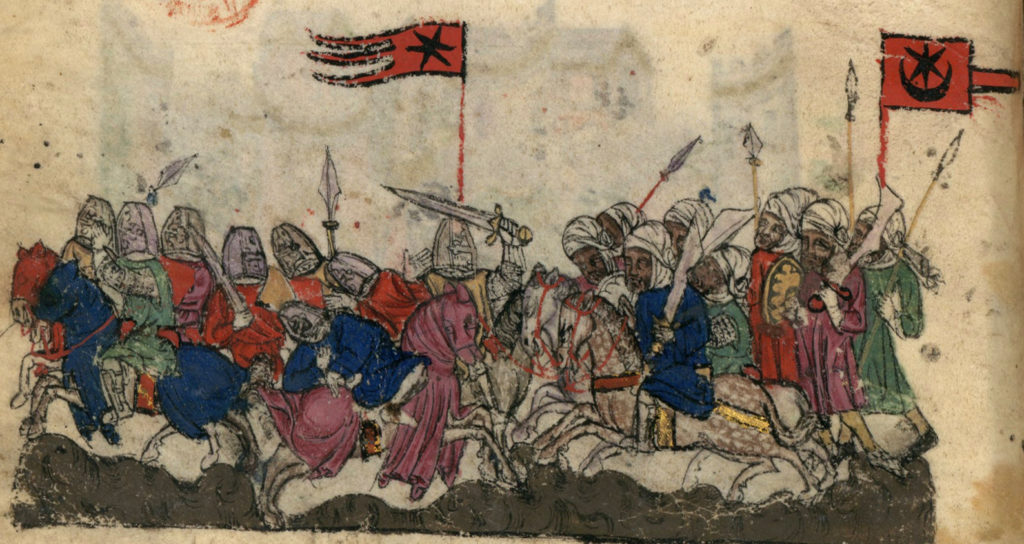
In the first decades of the 600s, the Eastern Roman Empire had fought in a titanic clash with the might of the Sassanid Persian Empire to their east. This war, one of many fought between the two great empires, swung first in favour of the Persians, then the Romans, over its 26-year course.
In the end, though the Romans emerged triumphant, both empires were militarily exhausted, with the Romans’ control over the provinces of Syria, Palestine and Egypt greatly weakened after their occupation by the Persians for much of the war.
While the two empires had engaged in their nearly three-decade conflict, a new force had risen in the region; the Rashidun caliphate, the successors of the Muslim prophet Muhammed, emerged with an army of Arab warriors from the Arabian desert just eight years after the war between Persia and the Romans ended.
The Rashidun armies invaded both Iraq and Palestine-Syria in 634. These likely started out as major raids, but their unexpected success turned them into conquests.
Roman Emperor Heraclius sent troops to rescue the Levant territories from the Arab invaders and initially had some success; the advance of the large Roman force of around 100 000 troops prompted the Arab armies to retreat to the plains of Yarmouk in southern Syria.

Here, however, Arab general Khalid ibn al-Walid led his 40 000 troops into battle.
The engagement lasted for six days, from 15 August to 20 August, with the fortunes of the two sides changing several times. In the end, however, the Arabs eventually managed to outflank the Romans, defeating their cavalry and surrounding, then breaking, the infantry. In the aftermath, the fleeing Roman army was cut to pieces, with around 45% of the troops killed for the loss of only 3 000 Arabs.
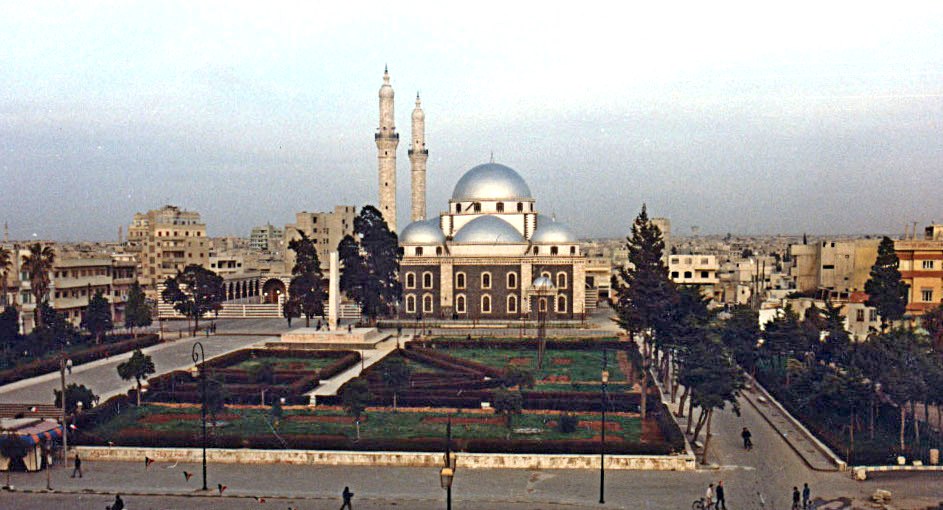
The battle was decisive in establishing Rashidun control over the Levant, and later over Egypt as well. With the Roman army was routed, local Roman subjects accepted their new Arabic overlords, with indifference and sometimes even enthusiasm; they had become increasingly hostile to Roman rule, partly as a result of intra-Christian doctrinal disputes with the Roman emperors, and partly because of the decline of the Roman presence in the region due to the damage inflicted by the Persians years before.
The Roman Empire was thrown into chaos and would face an almost unending series of defeats in the years to come as all of their territories in the Levant slipped away from them.
The Rashidun victory would lead to centuries of Arab and Islamic dominance in the region and is perhaps the most important single event in the history of the Middle East.
Following their victory at Yarmouk, Arab armies would conquer the Persian Empire all the way to the edges of the Chinese Empire in the east, and all the way west into Spain, until they were defeated by the Franks in southern France.
If you like what you have just read, subscribe to the Daily Friend


